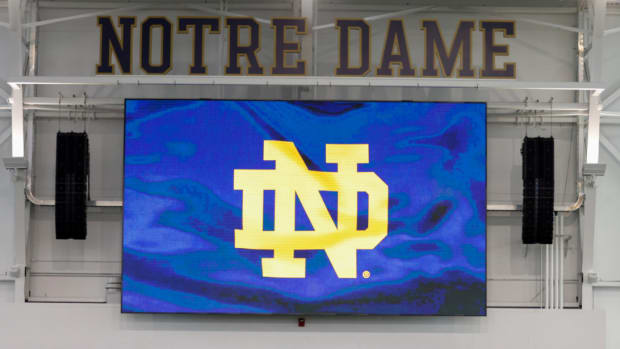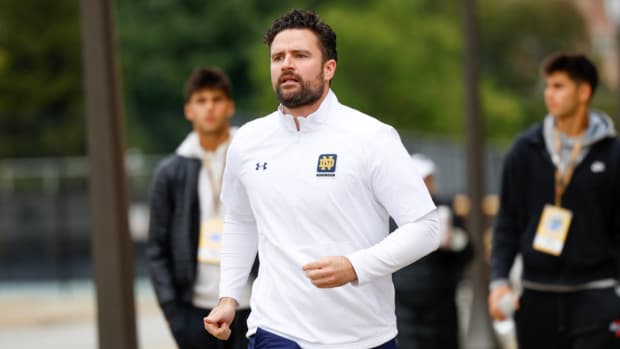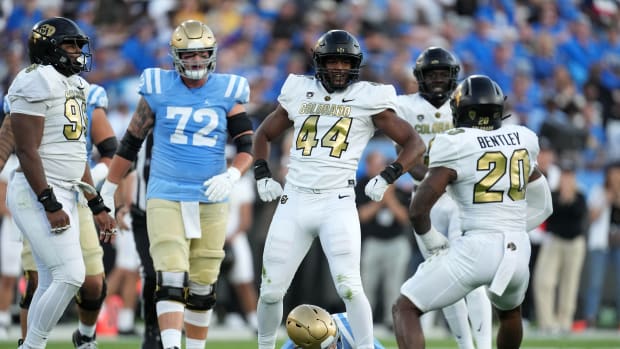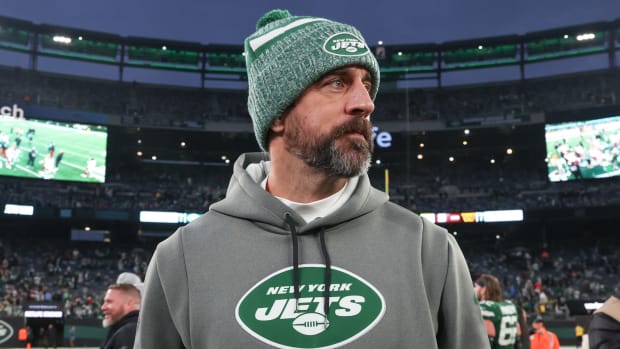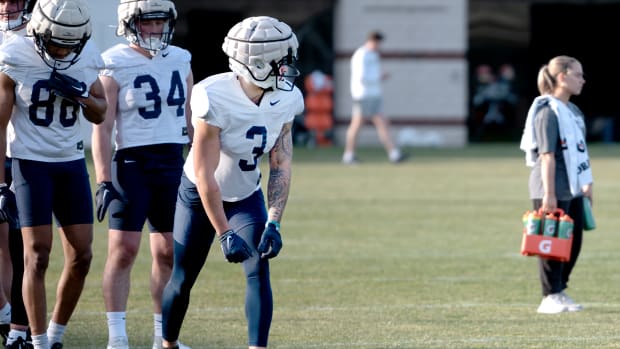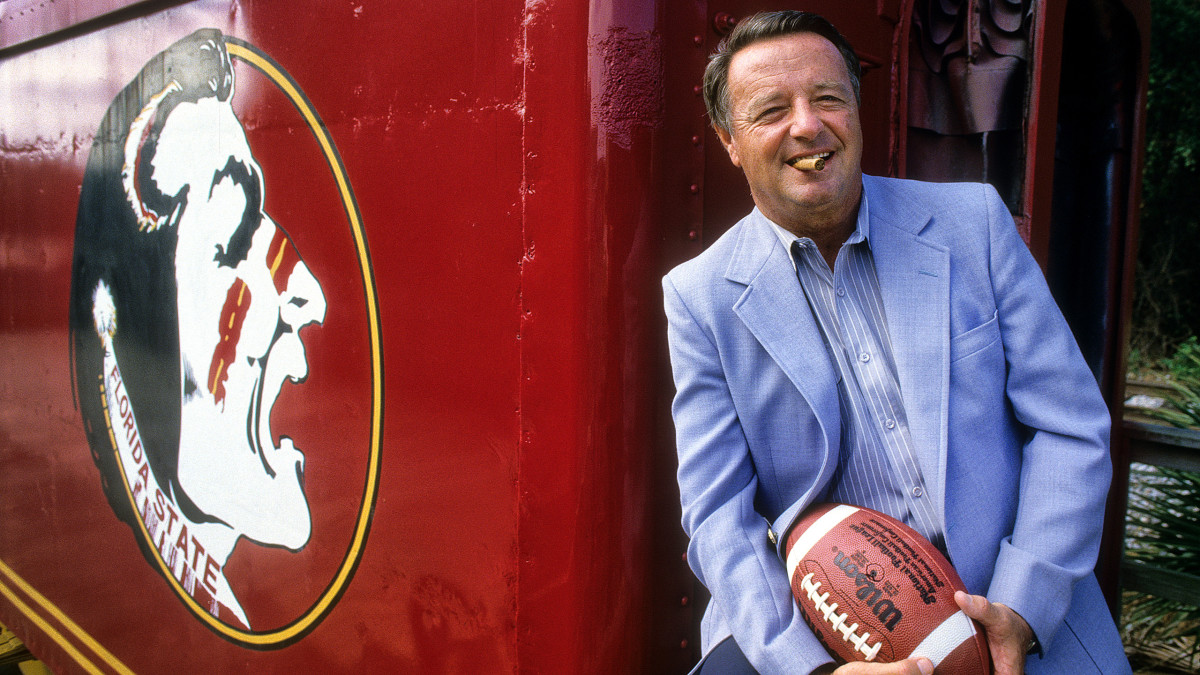
Remembering Bobby Bowden, a One-of-a-Kind College Football Giant
Can a long, rich career and a longer, richer life be distilled down to a single word, especially if that word is barely a word at all? Dadgum. Bobby Bowden could say it a hundred ways. He could be talking about a field goal that drifted outside the upright or an otherwise lovable young player (with a delightful momma and a beautiful baby sister) who drifted outside the law, only to repent. He could be describing a win in Gainesville, a loss in Miami (there were so many and they hurt so much) or the weather in South Bend. He could be carefully filling a blank space while formulating the answer to a question at one of his press conferences. He could be happy or he could be sad. Or maybe all along, he could be playing the role of his life.
Whatever the usage, dadgum opened the door and pulled us inside. It made us feel safe and right, the way all those recruits felt when the coach sat in their living rooms and sold Florida State University to them in a voice as smooth as melted butter and as earnest as the Sunday sermons he also delivered from lecterns in churches across the South. It is a word that bridged the distance from a sick young boy’s 1940’s bedroom in Alabama to an exalted place in college football history, measuring in two idiomatic syllables (or three, when Bowden went all the way to Dadgummit!) both the fire in the man’s belly and the sweetness in his soul.
Bowden died at the age of 91, Florida State announced on Sunday, leaving behind a legacy as one of the most successful coaches in the history of the college game. In 44 seasons as a head coach from 1959–2009 (34 of them at Florida State), Bowden won 377 games, the second-most official wins of any college coach. His Seminole teams were ranked in the top five in the country every year from 1987–2000, a run of success that was unprecedented then and unmatched since. That 14-year span produced two national championships and only 19 losses, half a dozen of which might have cost additional national titles. Bowden did all of this at a university that had been an all-women’s college less than three decades before he was hired in 1976 and which had seriously considered dropping football altogether after winning only four games from 1972–75. He moved Florida State to the Atlantic Coast Conference in 1992, winning nine consecutive league titles and 12 in the first 14 years. When he arrived, Doak Campbell Stadium had a capacity of slightly more than 40,000; when he left, it had more than doubled in size and the field had been named in his honor.
He was the last of the southern football giants, like Gen. Robert Neyland at Tennessee, Bear Bryant at Alabama or Pat Dye at Auburn, figures who were mythic in life, standing taller than the universities they represented and known only as Coach. But unlike those men, who ruled their kingdoms with an iron fist, Bowden applied a thick—and wholly sincere—layer of charm over his fierce competitiveness. It was former Miami coach Howard Schnellenberger who once vowed to “annex the state of Florida” in recruiting, but it was Bowden whose soft voice and spiritual passion owned the richest recruiting ground in America. “I like to visit kids, like to talk to them and talk with their families,” he told SI in 1998. “When I can’t talk to kids, I’ll get out.”
LeRoy Butler, who would go on to a Pro Bowl career with the Green Bay Packers, remembers Bowden driving into the Jacksonville projects to recruit him in 1986 and putting a rugged neighborhood in the palm of his hand simply by pointing to the Seminole on his shirt and saying, “We came to see LeRoy.” Five years later Bowden was in Pensacola recruiting another future All-Pro linebacker, Derrick Brooks. During the visit, Bowden held Brooks’s five-year-old sister on his lap until she fell asleep, and when Brooks’s mother moved to retrieve the child, Bowden said, “Don’t you move this gal, you let her stay here until I leave.” He recruited Deion Sanders in 1985 and two Heisman Trophy-winning quarterbacks: Charlie Ward in 1989 and Chris Weinke in 1999.
Bowden peppered press conferences and personal interviews with homespun colloquialisms. Asked in 1996 to explain why Seminoles’ tailback Warrick Dunn had received a direct snap and run for a crucial first down, Bowden chirped, “I told [offensive coordinator] Mark [Richt], ‘Run that dang direct!’ ” Bowden never rebuked the media for its questions, no matter how uninformed or, in times of controversy, how intrusive. Yet if his persona seemed gentle, his competitiveness lived beneath the surface. In the week leading to a late November battle with Florida in 1996, Bowden told an SI writer, “I think we’re going to kick their asses,” a statement which shocked many Florida State fans, who couldn’t believe their pious leader would utter such a phrase. But he did, and on that weekend, the No. 2 Seminoles upset the No. 1 Gators, 24–21.
This being big-time college sports, there was controversy, too. Scarcely five months after Florida State won the 1993 national title, its first under Bowden, an SI investigation with the cover headline "Tainted Title" revealed that a group of Florida State players had gone on an agent-funded spending spree at a Tallahassee during the championship season. The ’99 championship season encountered complications when star receiver/kick returner Peter Warrick was found to have accepted deep discounts at the same mall and Bowden did not dismiss him from the team. Bowden’s 2006 and ’07 teams vacated 12 victories in an academic fraud scandal that permeated the Florida State athletic department.
Bowden’s reign finally ended when he was forced out following the 2009 season, when at age 80 he refused to accept a ceremonial position on the sidelines while Jimbo Fisher ran the team. In truth, Bowden had been largely a figurehead for years, first moving from the practice field sideline to an observation tower and then relinquishing his headset on game day. He felt the sting of criticism for staying too long, but he had his motives. More than a decade earlier, in a 1998 interview with SI, Bowden said, “As you get to be my age, you look for new ways every year to hang on as long as you can. I’m trying to prolong my career because I love it so much.”
When the end came, he left bitter, writing in his 2010 memoir, Called to Coach, “I know things don’t always end the way you expect them to, but where was the loyalty you would think you’d get after 34 years of service? You can’t imagine how many times those in charge told me over the last twenty years, ‘Bobby, you can coach as long as you’d like at FSU.’” In fact, Bowden had found that losing is a more heinous crime than growing old—his last four teams averaged more than four defeats per season and none contended for national titles.
Robert Cleckler Bowden was born Nov. 8, 1929 in Birmingham, Ala. He was diagnosed with rheumatic fever at age 13 and filled long, bedridden days by listening to radio reports about World War II, fueling a passion for that period in history that stayed with him to his death. (His office at Doak Campbell was partly decorated with war artifacts, including a German helmet with a single bullet hole). A star athlete in high school, Bowden spent one year at the University of Alabama before transferring back to Howard College (which would later become Samford University) in Birmingham so that he could marry his high school sweetheart, Ann Estock. They would have six children together, and those children would bring the Bowdens 21 grandchildren, many of whom could be found in the coach’s office after a big win on some Saturday.
Bowden coached first at his alma mater and then became head coach at South Georgia College in 1956, when he was just 26 years old. He grew out his crew cut to look older than the players, and would say, years later, with Florida State boosters braying for his job, “I was always too young to be a coach, now I’m too old.”
West Virginia, where Bowden had been an assistant coach for four years, hired him as head coach before the 1970 season. Bowden averaged nearly eight wins a year in his first three seasons but slipped to six victories in 1973. In ‘74 his record slipped to 4–7, and he was hung in effigy on the Mountaineers’ campus. He rebounded to 9–3 in 1975 and jumped at Florida State’s offer to take over its flagging program, a move that brought him to the Sunshine State just as its high school talent exploded.
Once in Tallahassee, Bowden bought time with trick plays and a willingness to travel anywhere. In 1980, his Seminoles won at Nebraska and a year later they took down Notre Dame, Ohio State and LSU, all on the road. Recruits began pouring onto the campus and Bowden began chasing national titles with his Multiple I-formation offense. He was famously denied by Miami in 1991 and ’92, when last-second field goals sailed wide right, but broke through in ‘93 by vanquishing a loss at Notre Dame with an Orange Bowl win over Nebraska. Over the next decade, Bowden would sink ever deeper footprints in college football history, applying a gentle touch to a cutthroat system, proving he’d sprung from a mold long broken. One of a kind, dadgummit.
More on Bobby Bowden:

